


Ever wondered what happens to the thousands of unsold refrigerators each year? You won't believe the jaw-dropping consequences languishing behind these closed metallic doors.
With sustainability becoming a buzzword, the escalating issue of untapped appliance inventory is gaining attention. Our planet can't afford to ignore it anymore. But are we focusing on the right solutions?
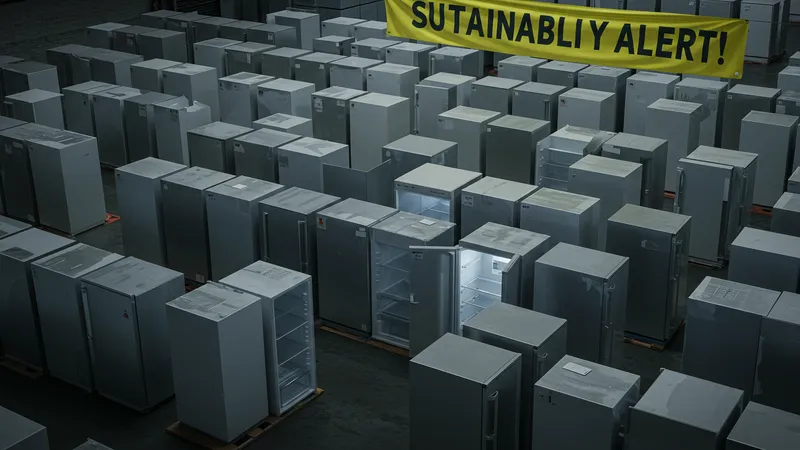
Astonishingly, over 30% of manufactured refrigerators never reach kitchens. These unused appliances contribute massively to both environmental waste and financial loss for companies. The landscape now demands immediate, innovative solutions. But that’s not even the wildest part…
Manufacturers often resort to destroying these unsold machines due to lack of storage space. Beyond the ecological nightmare, consider their financial impact: billions silently slipping down the drain. What sustainable strategies could change this? That’s what we’re about to uncover. But wait until you see the industry’s latest controversial survival tactics...
Just when you thought you’d heard it all, we delve into the unconventional methods applied by desperate companies. What happens next shocked even the experts…
When overwhelmed with inventory, some companies resort to unthinkable disposal methods. Shockingly, mass refrigeration units have been dumped into landfills, contributing significantly to pollution. Environmentalists argue that such actions are not just careless but criminal. The real question: how can companies justify this?
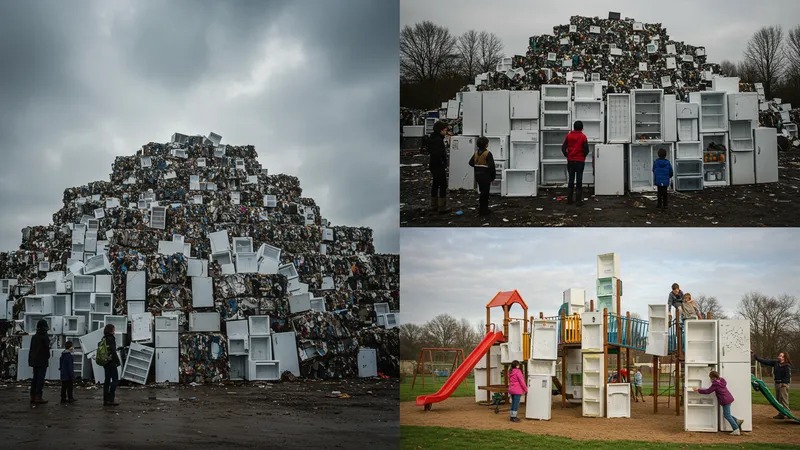
Innovative technologies present better alternatives for dealing with unsold units. For example, turning them into art installations or repurposing into playground structures. These options are not only eco-friendly but provide functional and cultural benefits. But there's more to the disposal story than repurposing attempts…
Governments in emerging markets have stepped in, buying surplus fridges for resale. Though appearing as a win-win, these fridges often end up in areas without proper recycling policies, leading to eventual environmental degradation. So are we just shifting the problem elsewhere?
These practices raise the ethical question—should companies prioritize profit over planet? Despite the innovation, the core issue of overproduction remains. What you read next might change how you see this forever.
One of the biggest culprits in the unsold refrigerators dilemma is over-forecasting. Manufacturers, riding on waves of optimistic projections, produce far beyond actual demand. This creates a ripple effect across the supply chain, with extra costs stacking up unnecessarily.
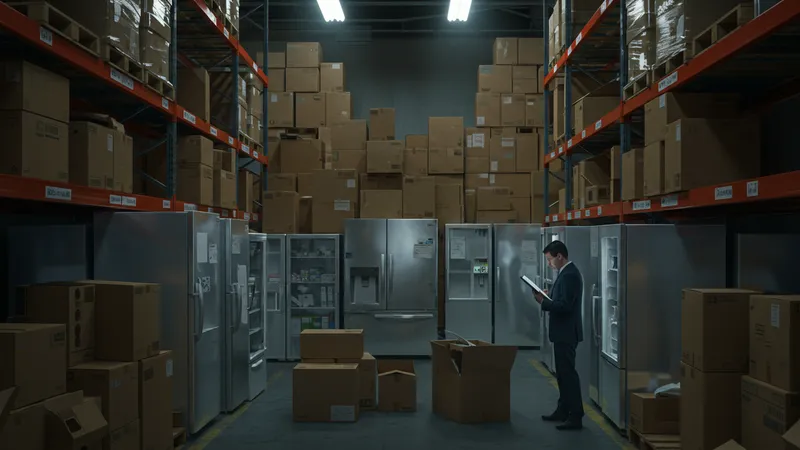
Such inflation of inventory not only burdens storage facilities but also ties up capital that could be better used for innovation and market expansion. Companies face mounting pressure to rethink their strategies and adopt more adaptive forecasting techniques. Let’s dive into those possibilities…
Data-driven forecasting methods offer a potential redemption path. By leveraging artificial intelligence, firms can predict consumer demand more accurately and adjust production accordingly. But the adoption rate lags, leaving room for further disruption in the industry.
The disparity between traditional forecasting and modern predictive analytics highlights a transformation gap. It’s a transition stuck in motion, revealing why the excess refrigerator issue persists. There’s another twist to this tale that hasn’t been fully explored yet…
Discarded refrigerators contribute heavily to environmental degradation, as their components release harmful pollutants over time. The global drive towards clean energy accentuates the irony of such wastage, calling for an urgent rethink of disposal protocols and production ethics.
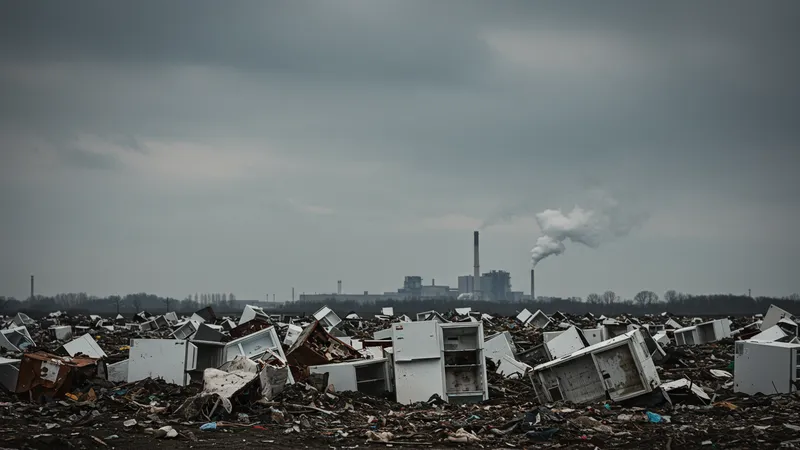
Beyond pollution, the production wastefootprint bears down. Manufacturing each refrigerator involves significant energy, water, and materials consumption. When these appliances go unsold, the wasted resources add up, magnifying the environmental toll.
Efforts to mitigate these impacts include the development of cradle-to-cradle recycling systems, enabling parts reuse in new units. Incentivizing these sustainable methods could shift industry norms, but there is resistance rooted in economic concerns.
This greener approach is gaining traction, but still lags in mainstream adoption. More companies are beginning to see the long-term benefits, yet numerous hold on to outdated practices. Brace for a mind-bending twist that follows…
In a surprising turn, non-profit organizations are stepping into the breach, rescuing unsold refrigerators and redirecting them to communities in need. This move has not only helped address underutilized stock but also supports socially responsible consumption.
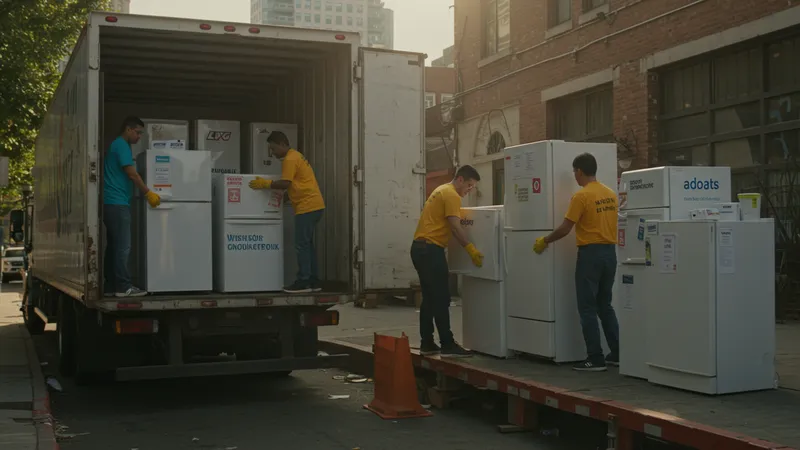
These organizations absorb the cost, partnering with brands to refurbish and donate appliances. It's an inspiring model that challenges traditional business practices to include a community-centered approach. What secrets lie in between their successes?
Some of these non-profits have pioneered eco-friendly refurbishment techniques, dramatically extending the life span of these fridges. Their efforts break new ground in sustainable appliance lifecycle management, offering a blueprint for the rest of the industry.
As the non-profit sector gains momentum, they face obstacles too, primarily around funding and scalability. But if this movement spreads, it could signify a monumental shift in appliance industry norms. Stay tuned for another layer to this fascinating development…
Industry insiders now predict a seismic shift towards custom-built refrigerators, a direct response to the unsold stock debacle. Personalized manufacturing minimizes waste by aligning production with real-time consumer demand. It’s here the refrigerator renaissance truly begins.
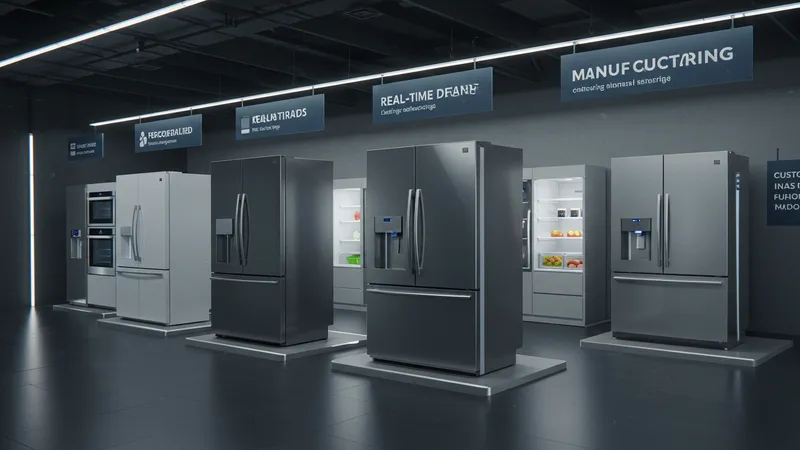
The implications of this shift go beyond reducing waste. Custom-built fridges distinctly capture consumer preferences, offering unique value propositions that drive both satisfaction and sales. This trend could redefine competition within the appliance landscape.
Nevertheless, production on demand requires a radical overhaul of existing supply chains. The high upfront investment deters risk-averse companies, slowing down wider implementation. Could this be the linchpin for the industry's future?
While on-demand manufacturing is promising, full adoption faces hurdles, notably technology constraints and manufacturing capability. Yet the potential pay-off incentivizes innovation fervor. But there's another untested concept waiting to be unveiled…
Artificial intelligence and machine learning stand poised to transform production accuracy. By predicting precise consumer needs, these technologies promise to eliminate the surplus problem that's plaguing the industry.
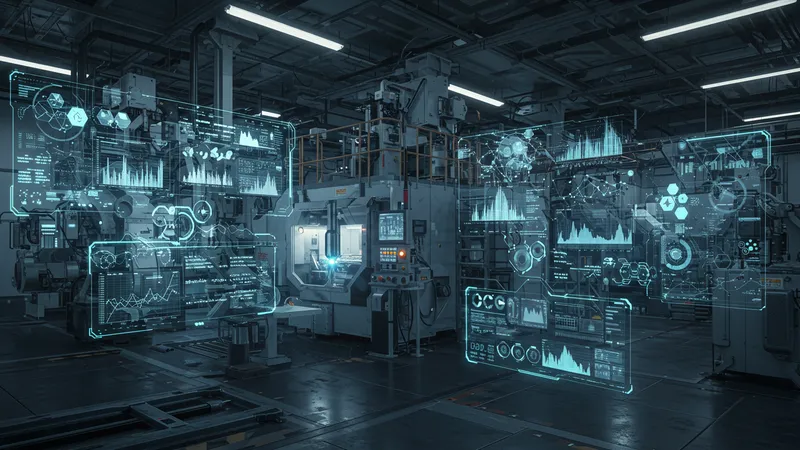
Advanced algorithms analyze patterns in buying behavior, offering manufacturers precise insights that curate customized production plans. The impacts are twofold: reduced waste and enhanced customer satisfaction. But does the future hold even more?
While technological implementation is technically feasible, the industry is slow to embrace change due to cost and integration complexity. This reluctance signifies an opportunity for savvy companies to leapfrog into a new benchmark of efficiency.
Beyond AI, cyber-physical systems are exploring possibilities in smart factory models, further enhancing adaptive manufacturing capacities. Could this technological awakening signify the end of unsolved refrigerator hauntings? Another layer of intrigue awaits…
While wealthier regions grapple with oversupply, the global south faces the opposite—insufficient access to affordable appliances. This dichotomy is stark, drawing attention to geopolitical distributions impacting the refrigeration issue.
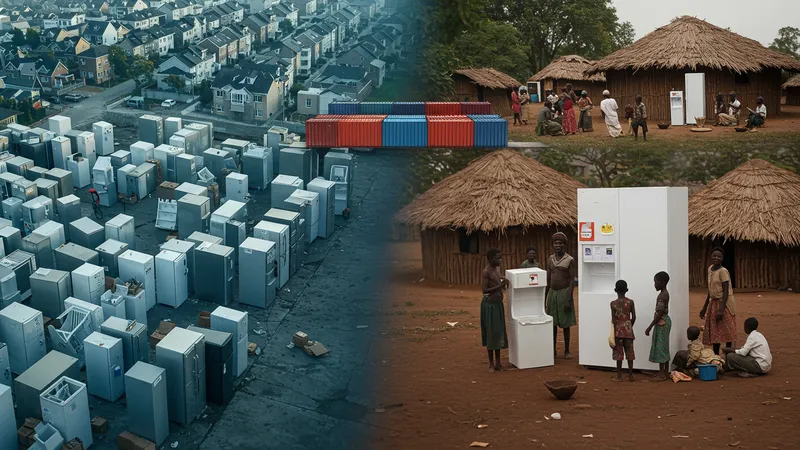
Creative solutions involve redistribution from surplus markets to underserved areas, creating a bridge for mutual benefit. This approach not only supplies necessary appliances but fosters economic exchange opportunities. On a worldwide scale, who truly benefits?
The primary challenge lies in logistics—determining effective and efficient shipment methods to maximize resource utilization. There’s another untold aspect to this that dives into the deeper workings of global appliance connections.
The global market intricacies suggest that a united approach, blending economic and environmental interests, could form a path forward. But beware, there’s a controversial angle to discover in the next chapter…
Underneath the seemingly benign practice of surplus resale lies a complex web of ethical dilemmas. Some companies have been found to offload lower-performing units into regions where regulatory scrutiny is minimal.
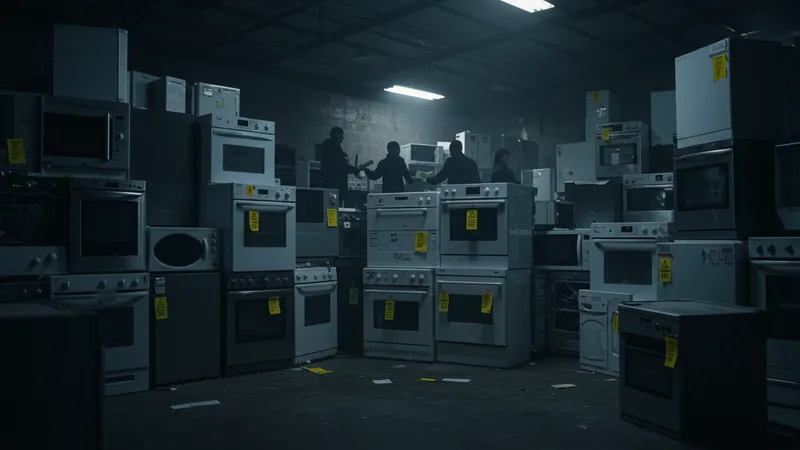
This practice raises legal and ethical questions about quality standards transparency and consumer exploitation. It’s a murky area where profit is prioritized over people—a harsh reality of the appliance industry's current state.
However, watchdog organizations are stepping up, imposing stricter guidelines and pushing for greater accountability from corporations. Their interventions could mark the start of an industry facelift towards more ethical resales.
Despite attempts to enforce higher standards, compliance remains inconsistent globally. The disparity highlights an essential conversation on multinational corporate ethics. The saga unfolds further…
Consumers hold unprecedented influence in today’s market, shaping production through purchasing decisions. Conscious consumerism is a growing force, empowering customers to demand more from manufacturers.
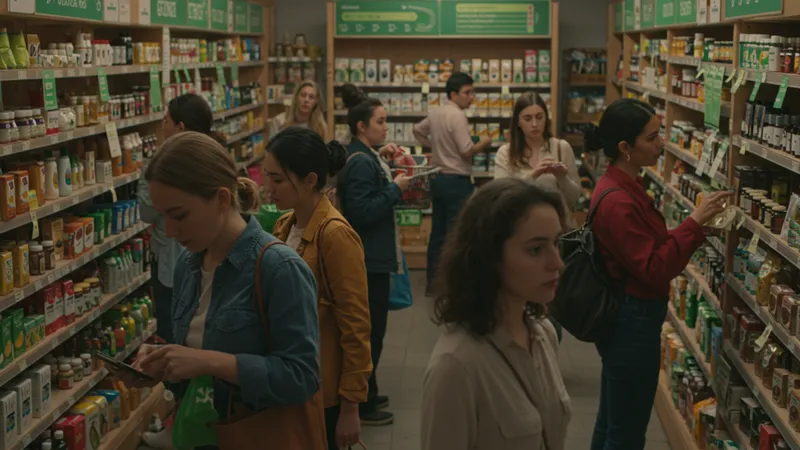
By opting for eco-conscious brands, buyers can incentivize production practices aligned with sustainability. The rise of environmental scores on appliances further supports this power dynamic. But what more can consumer pressure unlock?
The impact of shifting preferences is already evident in consumer surveys showing a preference for brands prioritizing ethical practices. With continued awareness, could this be the nudge needed to correct overproduction cycles?
Despite empowered consumers, market shifts occur gradually. Yet even small actions accumulatively create momentum for widescale industry change, promising hope for a greener refrigerator paradigm. There’s one final surprise to explore…
The road towards resolving unsold refrigerators is fraught with challenges, but innovative thinkers within brands, non-profits, and consumer bases indicate a promising shift. By converging technology, ethics, and consumer activism, an achievable solution beckons.
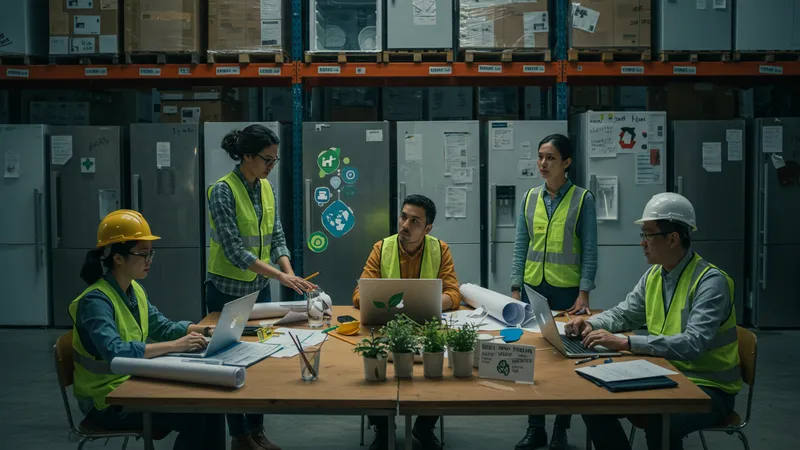
While optimistic, the reality enforces critical assessments of production, economics, and environmental impacts. Industry-wise change is indeed challenging, but in essence, possible, spurred by those willing to pioneer.
Strategies like recycling, responsible resale, and on-demand production process not only minimize waste but redefine appliance industry trajectories. Yet, patience and persistent questioning remain crucial for sustainable outcomes.
In the spotlight of global change, there lies a glaring opportunity—reshaping refrigerators from excess relics to sought-after essentials. The lesson, however, insists on considering what we prioritize our planet or unchecked industry growth?
Unveiling the unsold refrigerator dilemma is not just an industry concern but a call to collective conscience. The call is clear: we must demand more sustainable practices and engage in conscious consumerism. If you've found this information eye-opening, share it with others and ignite the conversation further. Stay informed, make ethical choices, and together, let’s envision a future where unsold isn’t an inevitable destiny, but an innovative challenge overcome.